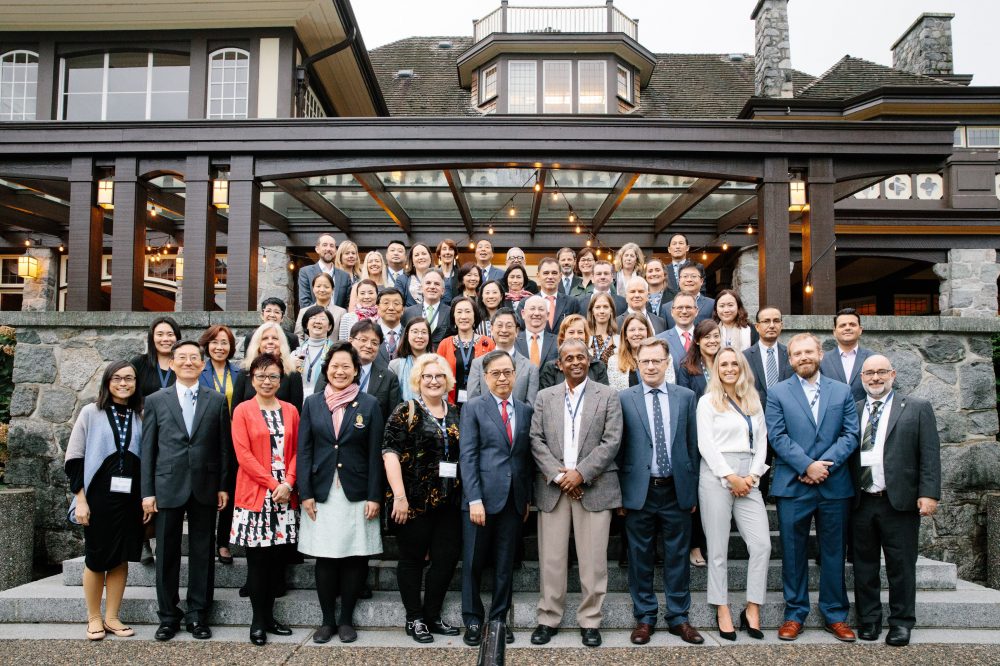SIL Meeting Resources
- Photo Album
- APRU Secretary General Remarks and Presentation
- APRU Strategic Plan 2019-2021
- Introductory video of SILM 2020
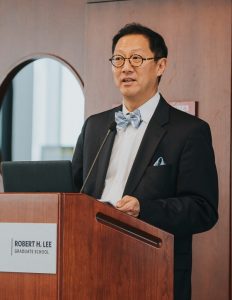
APRU Strategy: ‘Leading the Asia-Pacific Region: Contributing to the Global Common Good
This year’s Senior International Leaders’ Meeting (SILM) held September 18-20 at The University of British Columbia’s Vancouver Campus showcased how APRU members leverage their collective strengths to address the pressing needs
of our planet.
Held under the theme “Advancing a Just, Sustainable, and Prosperous World: University Impact and the UN SDGs”, the meeting’s first core component “APRU Strategy: ‘Leading the Asia-Pacific Region: Contributing to the Global Common Good” represented a new stage of implementing the APRU Strategic Plan 2019-2021 approved at the Annual Presidents’ Meeting last June.
UBC President and Vice-Chancellor Santa Ono extended a warm welcome to all delegates.
The Role of Universities in Serving the UN SDGs
The keynote address was delivered by Lauren Sorkin, Asia Pacific Director of the Rockefeller Foundation’s 100 Resilient Cities, a global network with 83 chief resilience officers (CROs) tasked with promoting the embedding of resilience principles into city plans and practices.
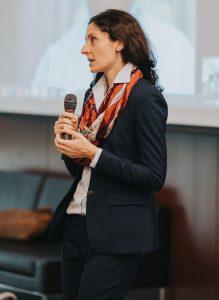
Presented via video conference, Satya Tripathi, UN Assistant Secretary General and Head of New York Office at United Nations Environmental Programme, urged for attention also on social mobility, health and well-being. He reiterated the importance of cooperation to make an impact on scale instead of success with one-off ideas.
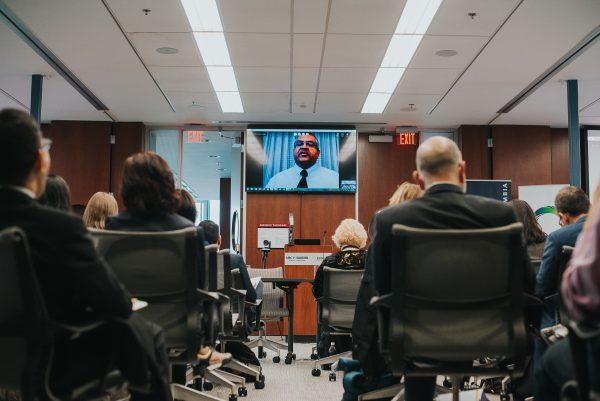
APRU Strategic Plan
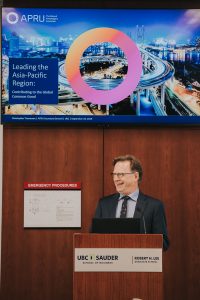
The new Strategic Plan, which sets out APRU priorities as building global impact; increasing APRU’s value to members; creating high-value partnerships; and generating the resources to achieve these priorities, comes in a time humankind is facing unprecedented crisis.
Scientists have been warning that many thresholds of irreversible climate change have been crossed, and that in the unlikely event that we can limit the rise in global temperature to under two degrees by the end of this century, the effects would still be catastrophic.
“The challenges seem overwhelming, but many of the solutions are now within reach, and we know what to do, given that we probably passed the tipping point when the green economy is more efficient and profitable than the carbon economy,” said Christopher Tremewan, APRU Secretary General.
“The challenge now is to work collectively to educate the last generation that has a chance to fix the planet and thereby both generate political will and implement the technical solutions at scale,” he added. Review his presentation and remarks.
Directors of research programs and SILs presented on a wide range of projects and programs, spanning from the Pacific Ocean Program and Digital Economy Program to the Mayors’ Academy for Sustainable Urban Development.
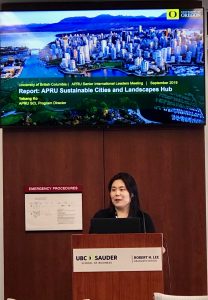
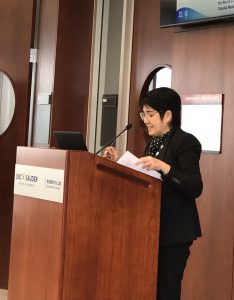
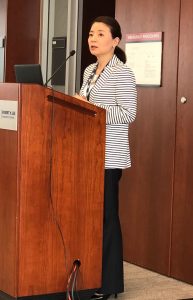
Student Mobility and the SDGs
SILM’s second core component “Student Mobility and the SDGs” through a flipped conference model and active workshops led participants exploring greater cross-institutional student experiences focused on big, global challenges.
To facilitate the co-creation of student mobility and engagement platforms, a survey of all APRU members had been conducted before the meeting to identify interests of universities to address the UN SDGs and document their activities to do so.
Student Panel: Cross-Disciplinary, Cross-Institutional and Cross-Continental Experiential Learning
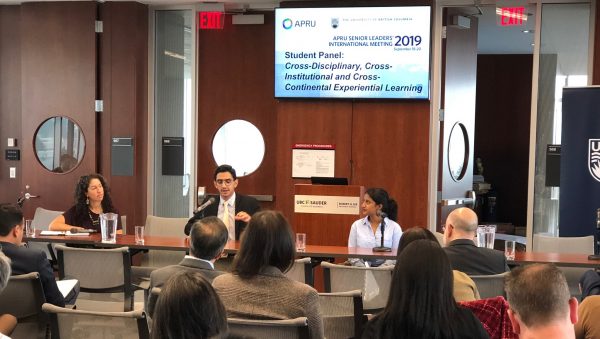
In a cross-disciplinary, cross-institutional and cross-continental experiential learning student panel, discussions led to the idea of creating an APRU passport for students to collect stamps for attending various courses, as well as a program among all APRU universities to come together to build at least one course on SDG, faculty collaboration to advance curriculum.
Participants also said that student mobility would greatly be advanced by the creation of a 3-week internships program in which all member universities are obliged to pitch in jobs or projects.
Travel costs, visa requirements, communication with key stakeholders, i.e., faculty, parents and administrators, as well as the need to identify champion universities to drive the initiative were singled out as the main challenges to improved student mobility.
“Real problems require cross disciplinary and diverse perspectives, as the gaps between different disciplines do not really exist in the real world,” said Parsa Chani, a Civil Engineering and Urban Studies Student at UBC, who worked in June as a summer consultant at 100 Resilient Cities in India.
During breakout sessions participants were asked how to measure the strategic priorities. Participants called for the crafting of a shared curriculum among universities for students to enhance on their understanding on SDGs; more self-reflection to reduce the carbon footprints of campuses and networks; and the development of means to find out how exactly policy papers are utilized by governments and policy makers.
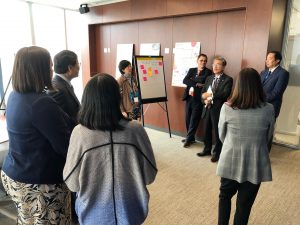
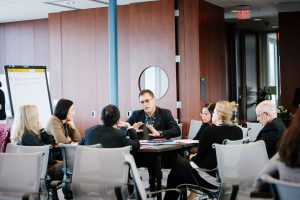
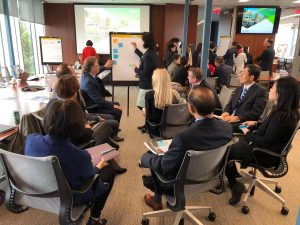
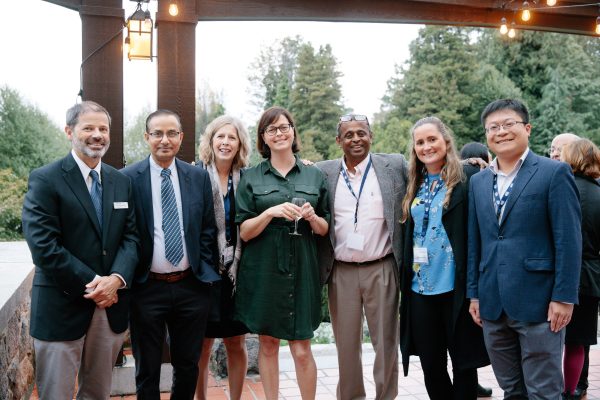
UBC Provost and Vice-President Academic Andrew Szeri (first on the left) who welcomed delegates to the Conference Dinner and the UBC team at the Office of the Vice-Provost International led by Vice-Provost Murali Chandrashekaran (3rd from the right).
Welcome to New Members and International Policy Advisory Committee (IPAC) Co-Chairs
During the welcome reception on September 17 evening, APRU welcomed its three new members Shanghai Jiao Tong University, the University of Queensland, and the Universidad San Francisco de Quito.
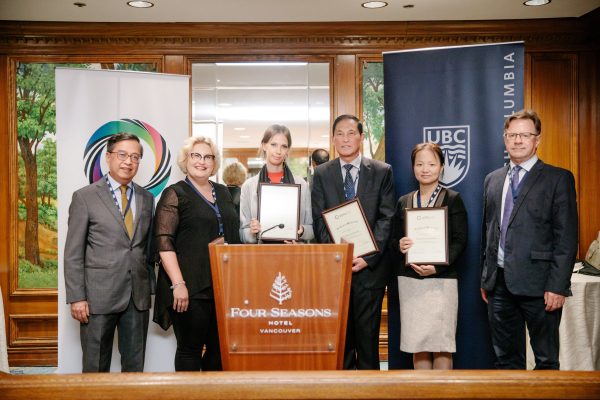
The network also welcomed the new IPAC Co-chairs Kathy Belov of The University of Sydney and Alan Chan of Nanyang Technological University.
The Co-chairs will be taking a leadership role in shaping the development and outputs of the APRU Senior International Leaders (SILs) in the coming years.
SILM 2020
The Senior International Leaders’ Meeting in 2020 will be hosted by Far Eastern Federal University in Vladivostok, Russia on October 8-10, 2020.

